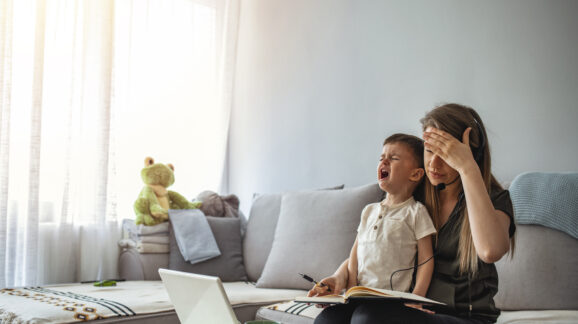KOSA is a poor substitute for parenting
Good parenting was always a lot of work, but guarding kids’ online mental health has added to the parental load. Not every problem has a policy solution, though. As is the case with most things, the best solutions for safeguarding kids online lie with families, not regulators or politicians.
It would be nice if politicians could wave a magic regulatory wand and tackle this challenge for parents (along with solving what to make for dinner, how to get the kids to travel sports games, and when to tackle all that laundry, while they’re at it), but as those calling for school choice have learned the hard way, outsourcing parenting to the government doesn’t end well.
One particularly bad, but well-intentioned, approach is the Kids Online Safety Act (KOSA). The House and Senate versions differ slightly, but the gist of these proposals is the same. They stipulate that online platforms have a “duty of care” to guard against kids engaging in self-harm; developing eating disorders, substance dependency, depression, or anxiety; and encountering bullying content online. These are noble goals, but they’re easier said than done.
There’s not a lot of hard science to back up the claim that, on balance, social media is all bad for all kids. But parents don’t need peer-viewed studies to know when there’s a problem with their own child. While some kids might benefit from online information and communities, some may find them harmful. This often depends on the child and may vary wildly even within the same age group, so there’s no silver bullet regulation that will work for all kids. Parents are the first and best line of defense for their kids’ mental wellbeing and, luckily, no one is a better judge of a child’s individual experience than his or her parent.
Many experts agree that parents communicating with their kids about online safety is key. Parents talking to their kids about how to stay safe online and urging them to speak up if there’s a problem is a relatively new parental duty, but an important one; the internet isn’t going anywhere. As kids get older, they’ll need the online world to learn, communicate and eventually pursue professional goals. It’s better for parents to teach kids to maximize the internet’s benefits and minimize its pitfalls, just as they teach about safety in the physical world.
But parents don’t have to go it alone. This challenge of teaching kids to navigate the internet safely is a big opportunity for entrepreneurs. There are already tools available at every level of the tech stack to help parents control and monitor their kids’ online experience. Social media platforms offer services for family pairing and daily screen time limits that parents can control. Internet service providers allow parents to block age-inappropriate content and turn off connectivity at certain hours. There are many ’apps to help too. One of them, Bark, will tell parents everything their child is doing on their device: it tracks their location, manages their screen time, and blocks unwanted content.
Read full article at The Washington Times
